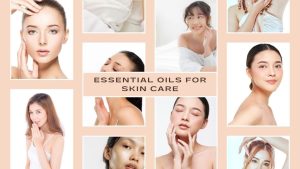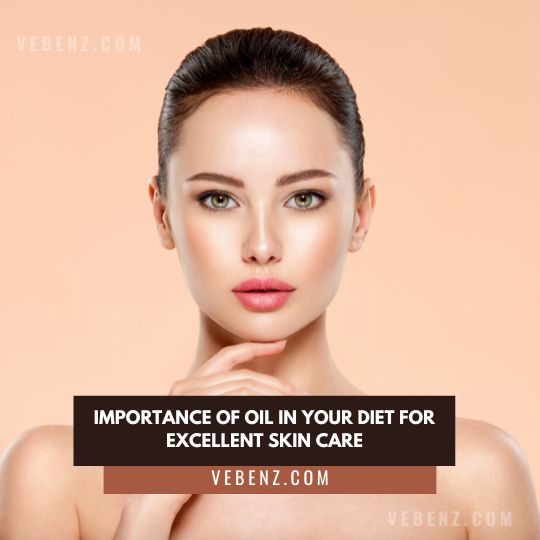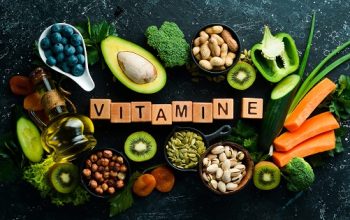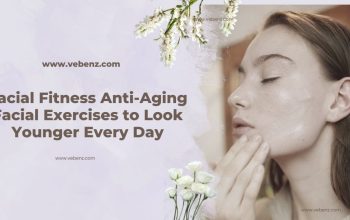Wellhealthorganic.com:diet-for-excellent-skin-care-oil-is-an-essential-ingredient: We all strive to have clear, radiant skin. We use various products, follow skincare routines, and even undergo treatments to achieve this goal. However, many of us tend to overlook the role of diet in our skin health. Here we will discuss the importance of oil in your diet for excellent skin care.
Wellhealthorganic.com:diet-for-excellent-skin-care-oil-is-an-essential-ingredient
Skin care oils are an excellent natural alternative to traditional skin care products. They are safe to use, affordable, and offer numerous benefits for the skin. If you’re looking to improve your skin health and achieve a radiant and youthful-looking complexion, consider incorporating skin care oils into your daily skincare routine.
There are different types of skin care oils available on the market, including coconut oil, almond oil, jojoba oil, argan oil, and many others. Each of these oils has unique properties that can help moisturize, nourish, and protect the skin.
When it comes to healthy skin, nutrition is a vital piece of the puzzle. The foods you eat can have a profound impact on your skin’s health and appearance. So it’s important to make sure you’re getting enough of the essential nutrients that keep your skin healthy.
What is skin care oil?
Skin care oil refers to any kind of oil that is used for skin care purposes. These oils are often derived from plants, nuts, and seeds and are rich in essential fatty acids, vitamins, and antioxidants that provide various benefits to the skin.
Skincare oils are commonly used in facial and body massages, as well as in moisturizers, serums, and other skin care products. They are also used to treat various skin conditions such as dryness, acne, eczema, and psoriasis.
One of the main benefits of using skin care oils is that they can help to keep the skin hydrated and moisturized. They penetrate deep into the skin and provide long-lasting hydration, which is essential for maintaining healthy and youthful-looking skin.
Moreover, skin care oils also have anti-inflammatory and antioxidant properties that help to protect the skin from external damage caused by pollution, UV rays, and other environmental factors. They can also help to reduce the appearance of fine lines and wrinkles, improve skin tone and texture, and promote overall skin health.
The Importance of Oil in Your Diet for Excellent Skin Care
Maintaining good skin health is essential for your overall well-being. While there are several ways to take care of your skin, one of the most crucial factors is your diet. Consuming the right foods can work wonders for your skin, and one such dietary component is oil. Here are some points on the importance of oil in your diet for excellent skin care:
- Moisturizes Your Skin: Oils such as olive, coconut, and almond oil help moisturize your skin from within. Including these oils in your diet can help improve your skin’s hydration levels, making it soft and supple.
- Improves Skin Texture: The essential fatty acids present in oils such as flaxseed and fish oil can improve your skin’s texture and make it look smoother and more youthful.
- Promotes Collagen Production: Oils such as avocado oil and argan oil are rich in vitamin E, which is essential for collagen production. A protein called collagen helps keep your skin elastic and firm.
- Protects Against Sun Damage: Some oils such as sesame oil and carrot seed oil contain natural sun protection properties that can help protect your skin from harmful UV rays.
- Reduces Inflammation: Oils such as tea tree oil and jojoba oil have anti-inflammatory properties that can help reduce skin inflammation and redness.
Incorporating oils into your diet can have a significant impact on your skin’s health. However, it’s important to choose the right oils and consume them in moderation. Consult a nutritionist or a dermatologist to determine the best oils for your skin type and needs.
Oil is an Essential Ingredient
Many of us associate oil with unhealthy foods and try to avoid it as much as possible. However, certain oils are essential for our overall health and well-being, including our skin health. Essential fatty acids such as omega-3 and omega-6 are vital for maintaining healthy skin.
Omega-3 fatty acids are known for their anti-inflammatory properties, which help reduce redness, swelling, and acne. Foods rich in omega-3 include fatty fish like salmon, flax seeds, chia seeds, and walnuts.
On the other hand, omega-6 fatty acids help maintain the skin’s natural barrier and prevent moisture loss. Foods that are rich in omega-6 include vegetable oils such as sunflower, corn, and soybean oil.
How to Choose the Right Skin Care Oil?
When it comes to selecting the right oil for your skin type, there are several factors to consider. A few things to remember are listed below:
- Skin Type: The first thing to consider is your skin type. Different oils work better for different skin types. For example, if you have dry skin, you may want to use an oil like almond oil or avocado oil, while those with oily skin may want to try tea tree or jojoba oil.
- Ingredients: Look for oils that contain natural, organic ingredients. Avoid oils that contain synthetic fragrances or other potentially harmful chemicals.
- Absorption Rate: Consider the absorption rate of the oil. Some oils take less time to absorb into the skin than others. If you’re using the oil during the day, you may want to choose one that absorbs quickly, so it doesn’t leave your skin feeling oily.
- Skin Concerns: Choose an oil that targets your specific skin concerns. For example, if you’re looking to reduce the appearance of fine lines and wrinkles, you may want to try oil like rosehip seed oil or argan oil.
- Brand Reputation: Look for oils from reputable brands that have a good track record of producing high-quality, effective products.
By taking these factors into consideration, you can choose the right skin care oil that will work best for your individual needs and help you achieve healthy, glowing skin.
Essential Nutrients for Good Healthy Skin
Having healthy skin is essential not only for aesthetic purposes but also for overall health and well-being. Along with a good skincare routine, it is important to include essential nutrients in your diet to maintain healthy and glowing skin. Here are some of the essential nutrients that are crucial for good healthy skin:
Vitamin A
Vitamin A is essential for the growth and repair of skin tissues. It helps to keep the skin moisturized and promotes the development of new skin cells. Sweet potatoes, carrots, spinach, and kale are healthy food options that are high in vitamin A.
Vitamin C
Strong antioxidant vitamin C aids in defending the skin against free radical damage. It also plays an important role in collagen production, which is necessary for maintaining skin elasticity. Good sources of vitamin C include citrus fruits, berries, kiwi, and broccoli.
Vitamin E
Another antioxidant, vitamin E, works to shield the skin from UV rays and other pollutants. It also helps to maintain skin elasticity and moisture. Good sources of vitamin E include nuts, seeds, and leafy greens.
Omega-3 Fatty Acids
Omega-3 fatty acids aid in maintaining the skin’s moisture and smoothness. They also help to reduce inflammation, which can contribute to skin problems such as acne and psoriasis. Good sources of omega-3 fatty acids include fatty fish, flaxseed, and chia seeds.
Zinc
Zinc is important for skin healing and regeneration. It also helps to regulate oil production, which can help to prevent acne. Beef, lentils, pumpkin seeds, oysters, and beef are all highly nutritious sources of zinc.
Water
Drinking enough water is essential for maintaining good skin health. It removes toxins from the body and aids in keeping the skin hydrated. Aim to consume 8 glasses of water or more each day.
Incorporating these essential nutrients into your diet can help to promote good healthy skin. Along with a healthy diet, make sure to protect your skin from sun damage, maintain a good skincare routine, and get enough rest to support overall skin health.
Benefits of Using Essential Oils for Skin Care
Using essential oils for skin care has become popular in recent years due to the numerous benefits they offer. The extremely diluted essential oils that are produced from plants. They are known for their healing properties and can help improve various skin conditions. Some advantages of using essential oils for skin care include the following:
1. Moisturizes and Nourishes Skin
Essential oils have hydrating properties that help to moisturize the skin. They contain fatty acids and other nutrients that nourish the skin and leave it feeling soft and supple. Some of the essential oils that are great for moisturizing the skin include lavender, rose, and geranium.
2. Reduces Inflammation
Inflammation is a common skin condition that can be caused by a variety of factors, including stress, pollution, and UV rays. Essential oils have anti-inflammatory properties that help to reduce inflammation and redness. Some of the essential oils that are great for reducing inflammation include tea tree, chamomile, and frankincense.

3. Fights Acne
A lot of people suffer from a common skin condition known as acne. Essential oils have antibacterial properties that help to fight the bacteria that cause acne. They also help to regulate sebum production, which can help prevent future breakouts. Some of the essential oils that are great for fighting acne include tea tree, lavender, and rosemary.
4. Anti-Aging Properties
Essential oils have antioxidant properties that help to prevent free radical damage, which is a major cause of aging. Additionally, they encourage the production of collagen, which can assist in lessening the visibility of wrinkles and fine lines. Some of the essential oils that are great for anti-aging include frankincense, rose, and neroli.
5. Soothes and Calms Skin
Essential oils have soothing and calming properties that help to reduce stress and anxiety. They also help to reduce skin irritation and redness. Some of the essential oils that are great for soothing and calming the skin include chamomile, lavender, and ylang-ylang.
Using essential oils for skin care is a great way to improve the health and appearance of your skin. Essential oils offer numerous benefits and can be used in a variety of ways, including in facial oils, toners, and masks. However, it’s important to use them safely and properly, as they are highly concentrated and can cause skin irritation if not diluted properly. If you’re new to using essential oils, it’s best to consult with a qualified aroma therapist or skin care professional.
What Are the Best Foods for Good Healthy Skin?
A healthy diet plays a vital role in maintaining good skin health. The food you eat not only affects your overall health but also your skin’s appearance and texture. Here are some of the best foods that can help you achieve healthy and glowing skin.
1. Fatty Fish
Fatty fish like salmon, tuna, and mackerel are rich in omega-3 fatty acids, which help keep your skin hydrated and supple. These healthy fats also reduce inflammation and prevent skin damage from harmful UV rays.
2. Avocado
Avocado is rich in healthy fats and vitamins E and C, which protect your skin from oxidative damage. Vitamin C helps in collagen synthesis, promoting skin elasticity, while vitamin E helps in skin repair and reduces inflammation.
3. Nuts and Seeds
Nuts and seeds like almonds, walnuts, sunflower seeds, and flaxseeds are good sources of vitamin E, zinc, and selenium. These nutrients protect your skin from damage caused by free radicals and promote a healthy skin barrier.
4. Dark Chocolate
Dark chocolate is rich in antioxidants that protect your skin from UV damage and improve blood flow to the skin. It also helps in skin hydration and improves skin texture.
5. Green Tea
Green tea is rich in antioxidants that protect your skin from damage caused by free radicals. It also has anti-inflammatory properties that reduce redness and prevent acne.
6. Sweet Potatoes
Sweet potatoes are rich in beta-carotene, which your body converts into vitamin A. Vitamin A promotes skin cell turnover and keeps your skin healthy and glowing.
7. Leafy Greens
Leafy greens such as spinach and kale are rich in vitamins A, C, and E, as well as antioxidants that protect the skin from damage.
8. Berries
Berries such as strawberries, blueberries, and raspberries are packed with antioxidants, which protect the skin from oxidative stress and damage.
Taking these foods into your diet can help you achieve healthy and radiant skin. However, it’s important to remember that a balanced diet, regular exercise, and proper skincare also play a crucial role in maintaining good skin health.
Conclusion
Wellhealthorganic.com:diet-for-excellent-skin-care-oil-is-an-essential-ingredient: Incorporating oil into your diet and skincare routine can benefit your skin in many ways. From reducing inflammation to moisturizing and protecting against free radical damage, oils are an essential ingredient for excellent skin care. However, it’s essential to choose the right oils and use them in moderation to avoid any adverse effects. Consult with a healthcare professional or a dermatologist to determine the right oils for your skin type and needs.



